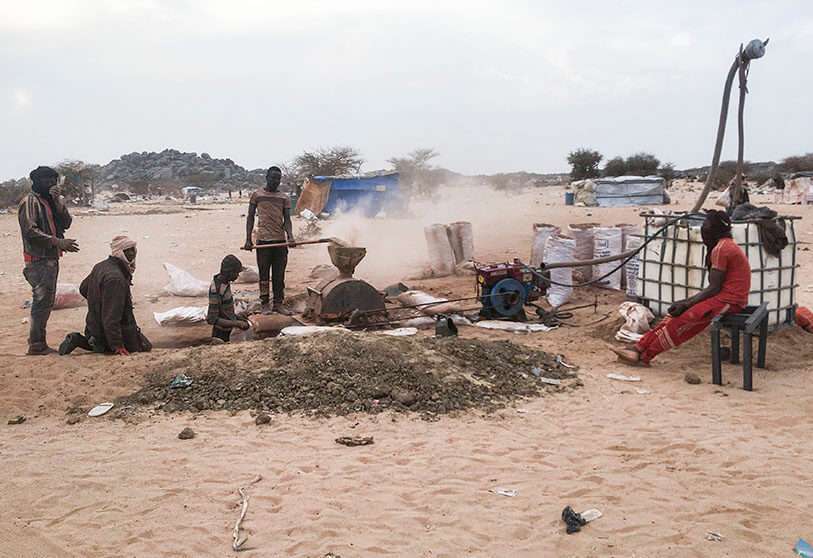World Bank to invest $5 billion in Africa

The international agency will invest more than $5 billion over the next five years to help restore degraded landscapes, improve agricultural productivity and promote development in 11 African countries as they recover from the COVID-19 pandemic. The countries that will receive the funds range from Senegal to Djibouti.
World Bank President David Malpass of the United States said the investment will help improve the livelihoods of the beneficiary countries while addressing the impact of biodiversity loss and climate change. Issues were addressed at the One Planet Summit, a high-level meeting organised jointly with France and the UN, at which Malpass announced the investment.
"This investment, which comes at a crucial time, will help improve livelihoods as countries recover from the COVID-19 and at the same time deal with the impact of biodiversity loss and climate change on their people and economies," said Malpass.
In addition to protecting biodiversity, improving agricultural productivity and landscape restoration, the $5 billion will be used for community development, ensuring food security, job creation, building new infrastructure and facilitating access to renewable energy.
"Restoring natural ecosystems in Africa's drylands benefits both people and the planet," said Moussa Faki Mahamat, Chairperson of the African Union Commission, defending the efforts of international bodies on this issue.
To the amount announced by the World Bank, we must add the 14.5 million dollars that PROGREEN, a global fund of the same agency, will allocate to five countries of the Sahel (Burkina Faso, Chad, Niger, Mali and Mauritania) to fight against landscape degradation.

The World Bank Group is the largest multilateral financier of climate investments in developing countries. In December 2020, it announced an ambitious target of 35% of its financing having climate co-benefits over the next five years.
Another key announcement at the One Planet Summit relates precisely to the Great Green Wall of the Sahel, a project that has been committed to receive $14.326 billion over the period 2021-2025 to promote sustainable economic development.
The plan is to create an uninterrupted band of vegetation and cultivated land in the Sahel region to slow down the advance of the Sahara desert. By 2030, the project plans to have vegetated a total of 100 million hectares of degraded land. This would be extremely beneficial in that it would create 10 million jobs and absorb 250 million tonnes of carbon from the atmosphere.
French President Emmanuel Macron, who hosted the event, stressed that these objectives "show the capacity of Africa to be an actor in the fight against climate change" and was pleased with the amount of money raised.
Macron announced that there will be a follow-up to the project at the France-Africa summit to be held in the French town of Montpellier in July, and at the next UN General Assembly in September.
At the Summit, 50 countries pledged to mobilize funds and action from governments, businesses and citizens to protect 30% of the oceans and land in the next decade, and to restore 100 million hectares of degraded land. Brazil, Russia, India and the United States were the major absentees.
The data is alarming, as it turns out that 60% of the world's ecosystems are degraded and more than a million species, both plants and animals, are threatened with extinction, according to data provided by the United Nations.
Accelerating the protection of biodiversity is the reason for this summit, which is now in its fourth year. At present, it is estimated that only 15% of the land on the entire planet and 7% of the oceans have some degree of protection.

"We know even more clearly in the midst of the crisis we are going through that all our vulnerabilities are interrelated. The pressure on nature from human activities is increasing inequalities and threatening our health and safety (...) We can change history if we choose to do so," Macron said.
The summit focused on four themes: protecting terrestrial and marine ecosystems; promoting agro-ecology; increasing funding to protect biodiversity; and identifying the links between deforestation and human and animal health.
UN Secretary General António Guterres said that according to the World Economic Forum, the trade opportunities resulting from these development and nature protection programmes could create 191 million jobs by 2030.
On the occasion of the pandemic generated by COVID-19, the Summit took the opportunity to launch the so-called Prezode plan, which will be responsible for preventing the emergence of zoonotic diseases, i.e. diseases that jump from animals to humans. The French President announced that he is already mobilising more than 400 researchers and experts worldwide.










